There’s a value in coins. Sometimes, the value of a coin is worth much greater than its face value. This is likely due to the rarity in the material it was made out of, how many of those coins are in circulation, or due to an error at that mint where the coins were pressed incorrectly.
There are lots of coins that are worth much more than they appear at face value. Depending on the materials used to make them, how many were made, and how long ago, your coins might be worth a pretty penny today. If you come across these rare coins in your collection you should cash in for a nice chunk of change! Check out the rarest and most valuable coins in the world.
Morgan Silver Dollar, 1895
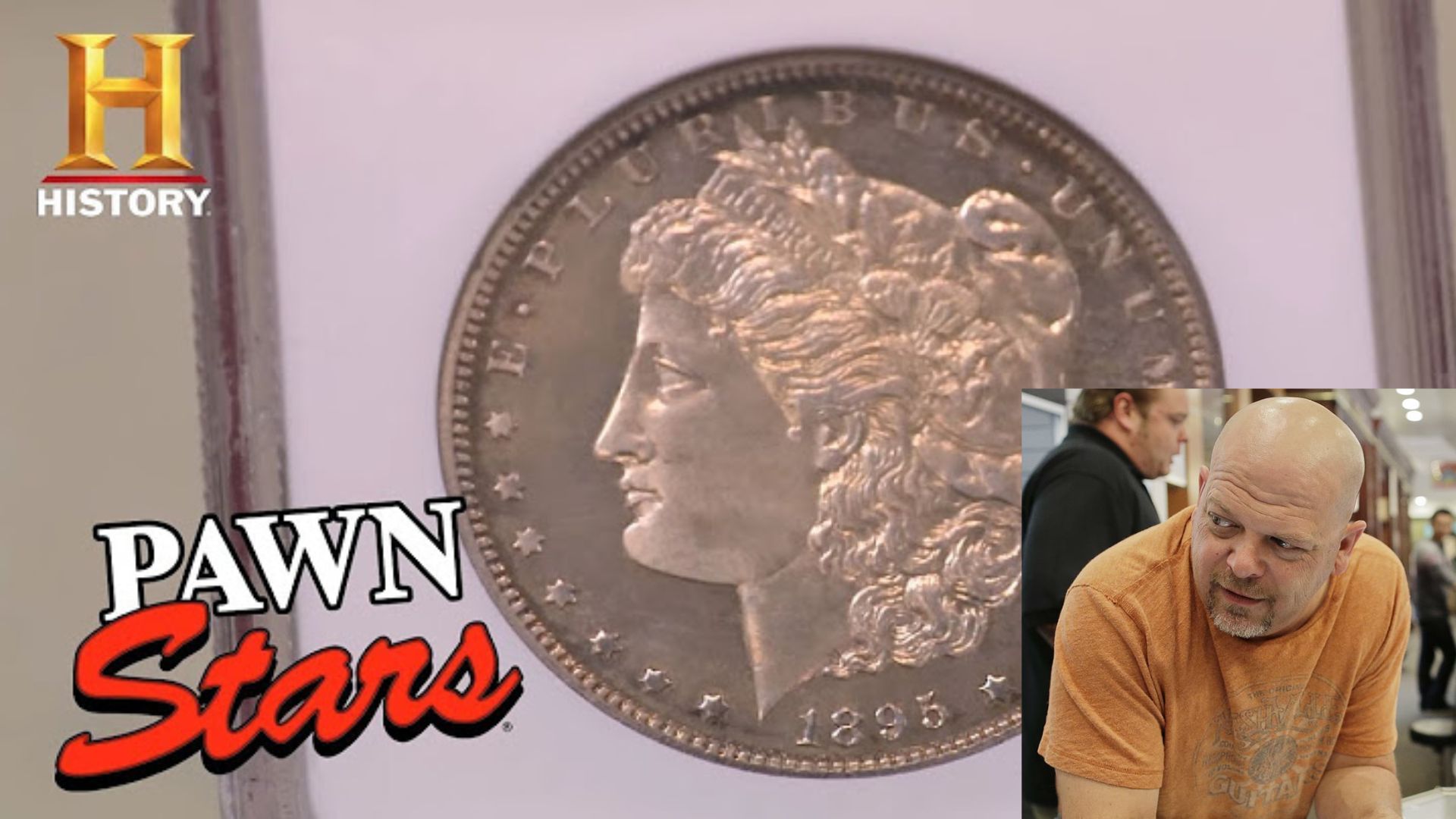
Estimated Value: $100,000
The 1895 Philadelphia-minted Morgan Dollar is the rarest of the Morgan dollars, and as such, runs for a pretty penny. One lucky gentleman brought in this coin to the pawn shop on the show Pawn Stars. He was hoping to get $100,000 for the coin.
However, the offer was only $40,000 so he chose to keep his coin and get a second opinion. Good thing too, because there are only about 800 of this coin ever made and could be sold for far more than that at auction!
Lincoln Head Copper Penny, 1943
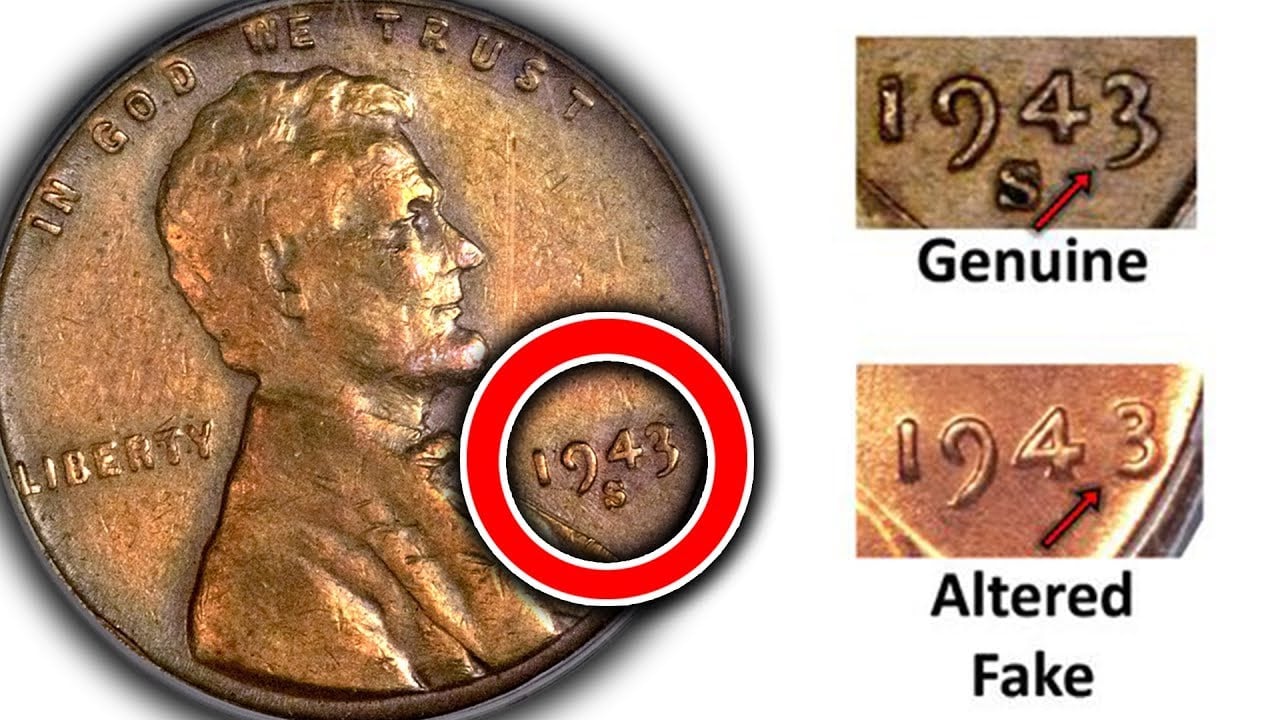
Estimated Value: $2.3 Million
This 1943 penny is unique because during the second World War, the U.S. was in need of all the copper and nickel metals for battle purposes. So, the pennies in 1943 were made out of steel instead.
However, one batch was made from copper instead and 20-40 of these pennies are still hanging around today. The different versions cost more or less. Some versions are worth between $100,000 and $500,000. The most expensive of which is worth more than $2 million.
Sacagawea Error, 2000
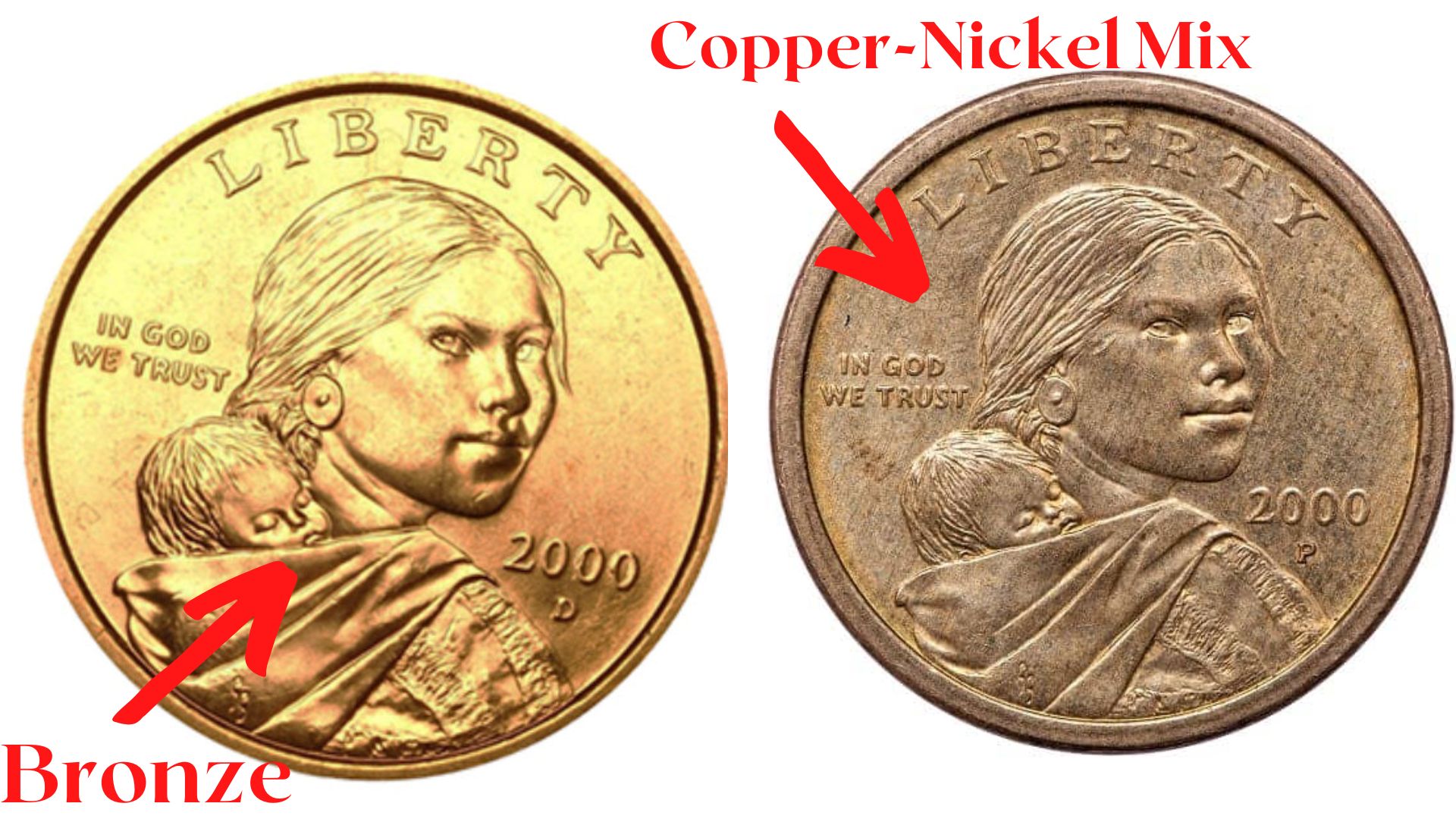
Estimated Value: $7,600
The same year General Mills ran amuck with their Sacagawea dollar, the U.S. Mint was up to their own shenanigans with another Sacagawea coin.
This representation was supposed to be made in bronze. During the process, someone got confused, and instead there was a percentage printed on a copper-nickel mix. The material makes the difference between a coin that is worth thousands of dollars and one that is worth 1 singular dollar. These accidental creations have sold for as much as $7,600.
Walking Liberty, 1919
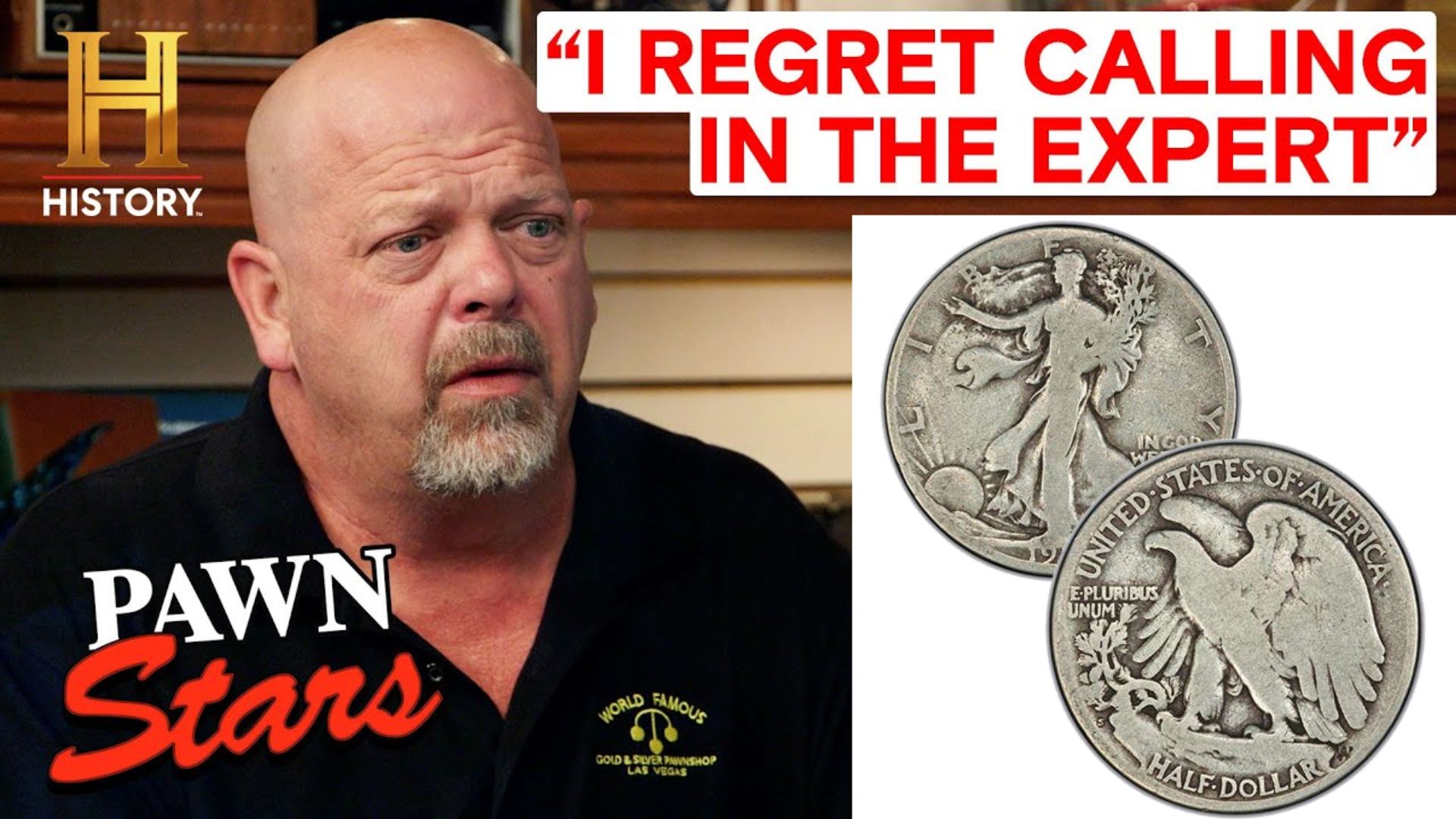
Estimated Value: $200,000
When so much of western civilization is embroiled in war, it might not be the best time to come out with an inspiring coin. Or maybe it’s good for morale.
Walking Liberty was a half dollar that came out when a majority of our young men were deployed overseas. Just like how women purposely wore red during WWII to irritate Hitler, this design was meant to encourage shows of patriotism across the US. Due to shortages of everything, there weren’t many of these made.
Saint Gaudens Gold, 1933
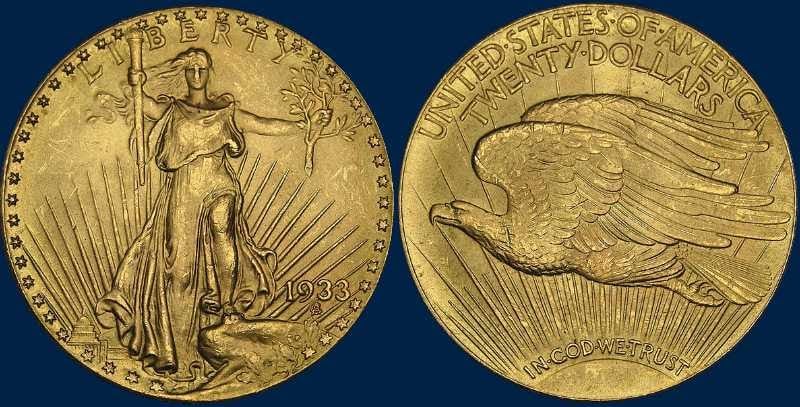
Estimated Value: $9,000,000
At the height of the depression, FDR was making moves to help the economy. One step he took was to put a halt to using gold as legal tender. Little did he know, new $20 gold coins had just been made.
Since they would no longer count as currency, they were ordered to undergo a state-sanctioned meltdown. Two were donated to the Smithsonian. A couple of handfuls were rescued before destruction. If one were to be found on the market, it would have a listing price of $9 million.
Hawaiian Plantation Token, 1882
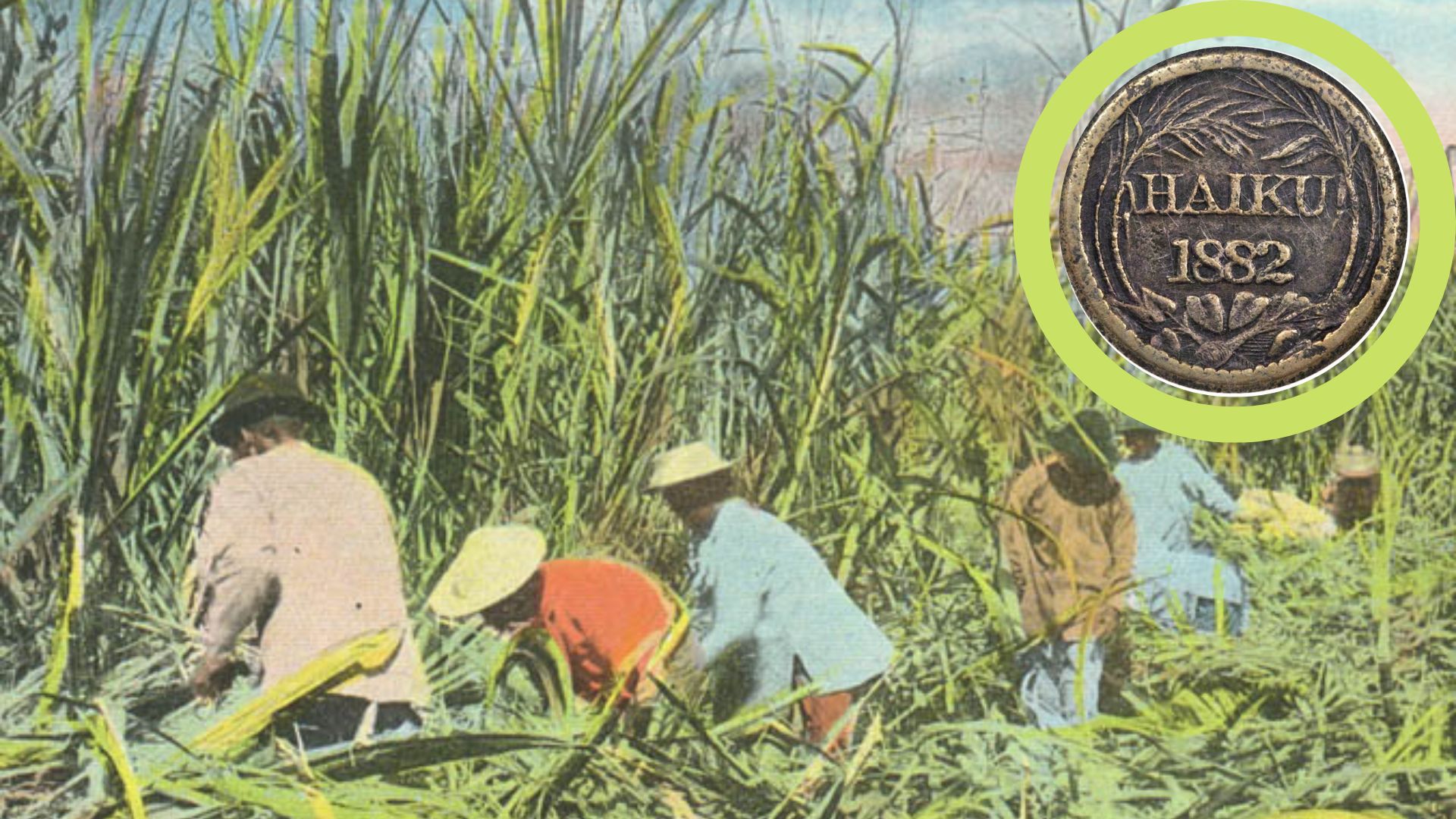
Estimated Value: $11,000
Like the $10 Alaskan coins, the Hawaiian Plantation Tokens were a limited-time, limited-accepted form of money. Of course, since they are so scarce, they are now more valuable than ever.
The only place that actually would take these coins as currency was sugar plantations. If only someone from that time period could see their worth nowadays. These tokens, which were almost completely useless back then, are now being sold for $11,000.
S Barber, 1894
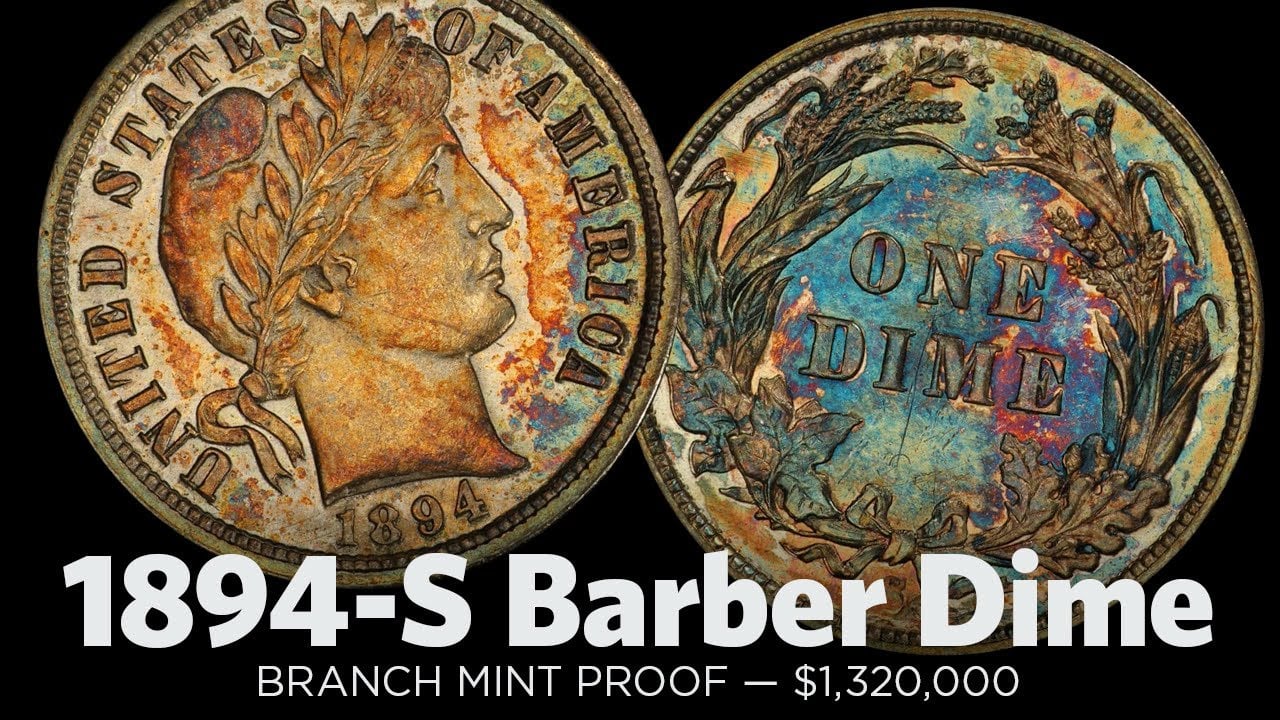
Estimated Value: $1,320,000
There’s rare and then there’s this. It would take a literal miracle to come across one in the wild today.
The main reason for that is that out of 24 ever made, only nine are believed to have made it this far out. Why were there only 24 dimes with Lady Liberty? You’ll have to ask the San Francisco Mint. They seem to do uncalled-for things more often than any other mint, as we’ll share more about later on.
Kennedy Silver Dollar, 1964
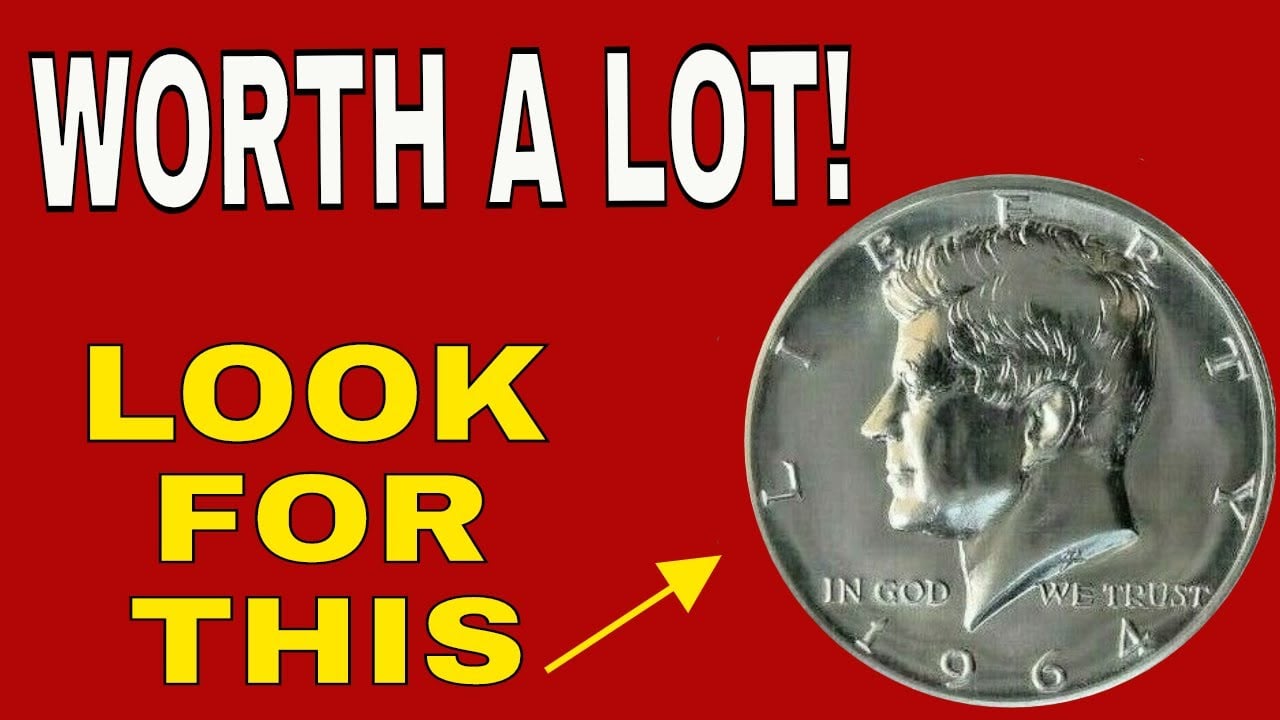
Estimated Value: $1,500
They say a good accountant is worth their weight in gold. These half dollars are worth their weight in silver. Well, more, but you get the drift.
There was a time when coins were made with precious metal. It just so happened that this was the last year the half dollars were made from 90% silver. In the following several years, the amount of silver in these silver dollars dropped by half. Beyond that time, the half dollars were made of other materials.
Aluminum Penny, 1974
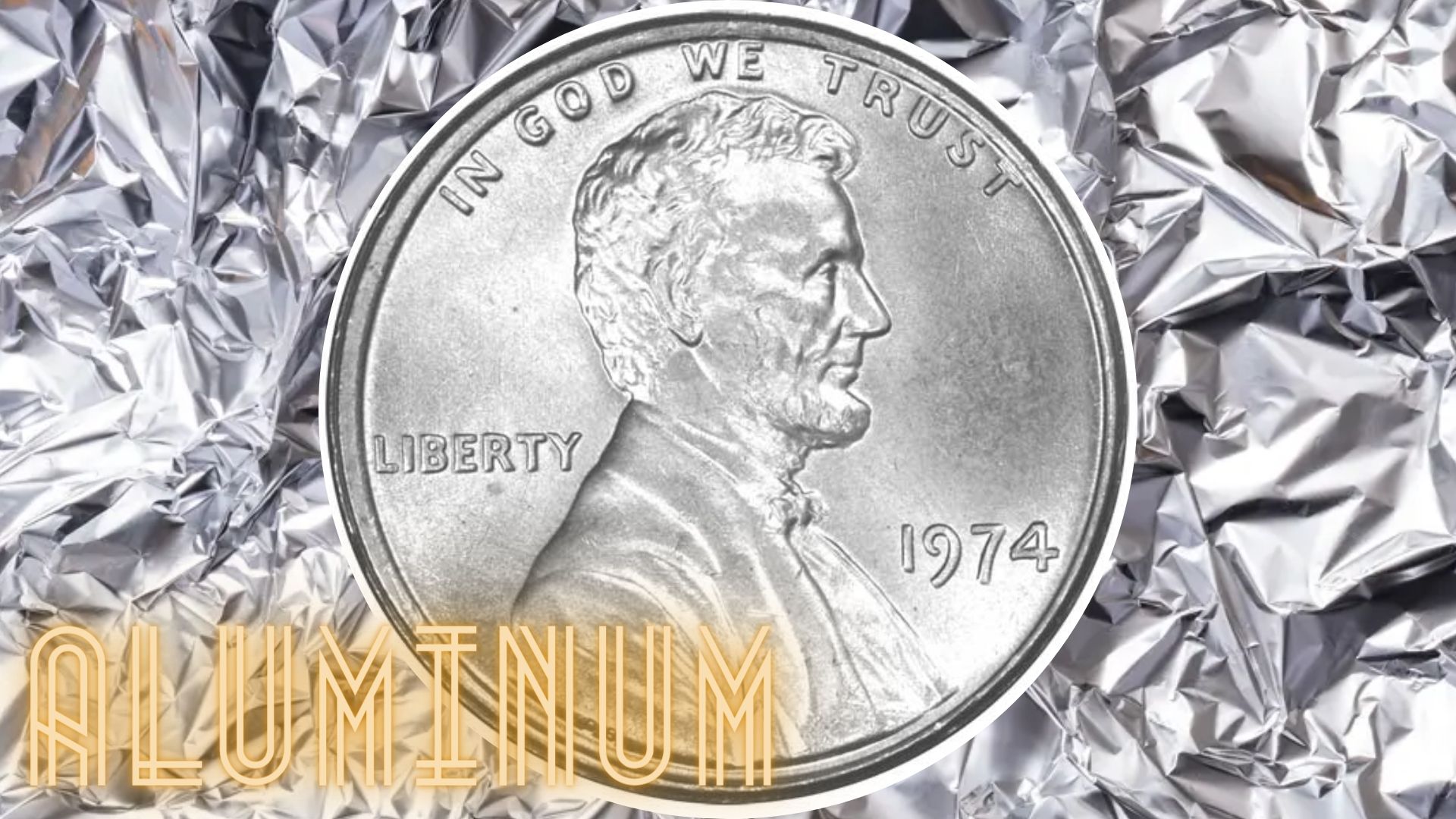
Estimated Value: $250,000
We all want to fit in. That need for acceptance doesn’t stop with the way we look. We also want our coins to fit in. At least the U.S. Mint did. Who needs a penny to stand out anyway? Well, the truth is, they were looking for ways to cut back on expenses.
In the early 70s, the cost of copper was above logic. So, 1,500,000 of these aluminum versions were stamped out. Of course, just as these were going to get rolling out, the whole project was pushed off the table and into the trash. Not before some got out, though. One of these could buy you a house today.
Cheerios Sacagawea, 2000
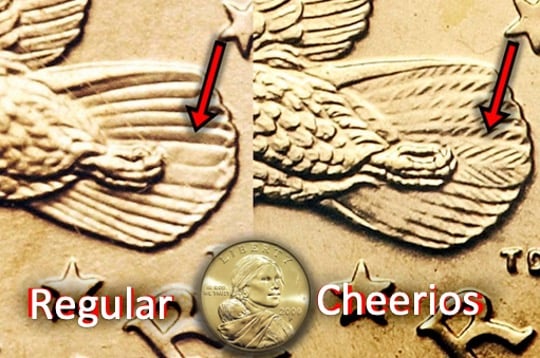
Estimated Value: $2,700
There’s a good reason that contests are prepped well in advance. General Mills went out of their way around the turn of the century to remind us how much preplanning is necessary.
As a promotion, these Sacagawea dollars were placed in an undisclosed number of Cheerios boxes. During an awkward turn of events, General Mills needed to employ the assistance of the U.S. Mint in order to see their contest through fruition. So, a different version of what the cereal manufacturer had put together was used. Only a handful have been recovered. If you happen upon a stale box of cereal with one, it would be like winning a contest, since you’d get almost $2,700 for it.
Sacagawea Double Denomination, 2000
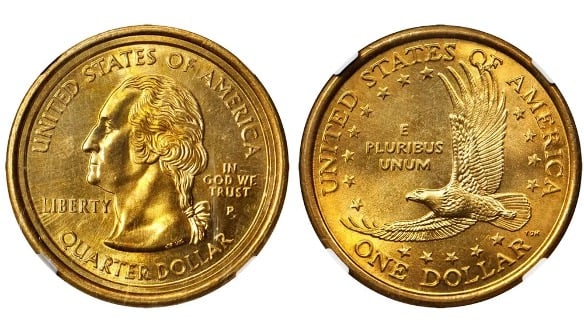
Estimated Value: $118,000
What is it about Sacagawea that distracts people from getting their jobs done correctly? After this many errors in the same year, it should be expected that the biggest mistake in U.S. Mint history was on a coin dedicated to her.
As you might have picked up from the image, there’s one glaringly obvious omission. Yep, instead of putting Sacagawea on her own coin, they put George Washington. So, you have a gold George on the front with the Sacagawea eagle on the back. It’s sad, but it’s true. So sad, in fact, that only 16 are known to exist.
Alaska Rural Rehabilitation, 1935
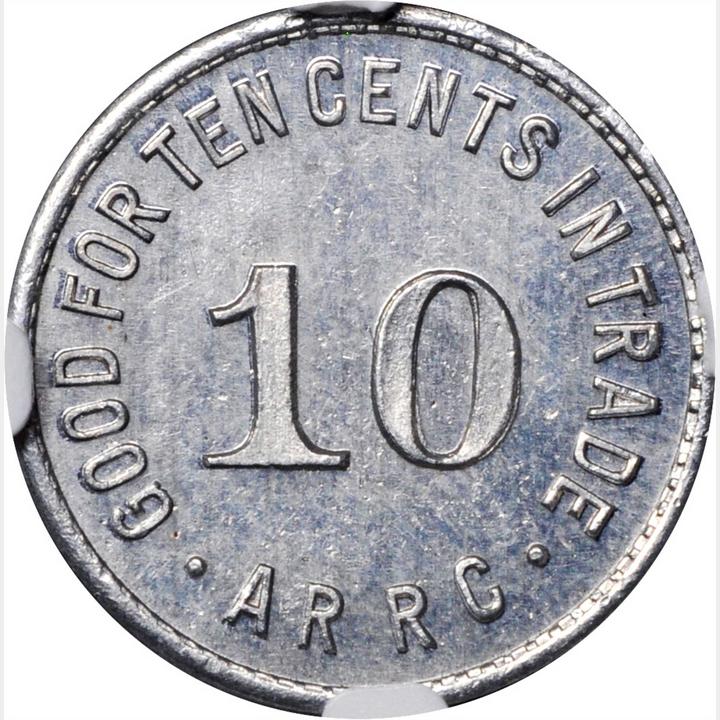
Estimated Value: $1,750
The Great Depression hit the whole nation in a devastating way. However, some places were hit worse than others.
One of the worst-hit areas was Alaska. In an effort to offer a fresh start to those most impacted, President Roosevelt used the Federal Emergency Relocation Administration to move citizens somewhere new and give assistance. These coins were part of that package. Over time, they were no longer needed and were sent to be melted back from whence they came. These $10 coins are now worth $1,750.
Wounded Eagle, 2000
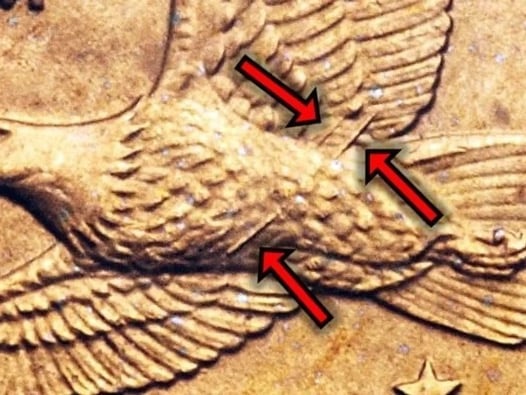
Estimated Value: $500
2000 was not done with Sacagawea yet. So, you saw how on the Sacagawea-less Sacagawea coin, at least they kept her trusty eagle. Unfortunately, this poor eagle had his own issues. As they were trying once again to get this dollar right, someone or some machine would not let it.
As a slap in the face to our nation’s mascot and history, we have wounded the inspiring eagle on the back of this coin. We are left with what looks like the majority of an arrow piercing the mighty symbol’s side. There are 200 floating around today.
No “S” Dime, 1975
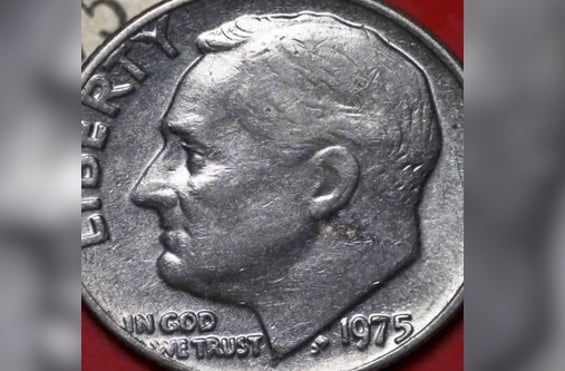
Estimated Value: $500,000
These coins were literally born to be collected. So, true to fashion, they just so happened to have an error that was straight out of San Francisco.
What made these dimes incomplete was the missing “S” that denotes where it was stamped. So, when you compound the factors that brought this collector’s coin into existence, it’s no surprise that it’s now worth half a million dollars!
In God We Rust, 2005
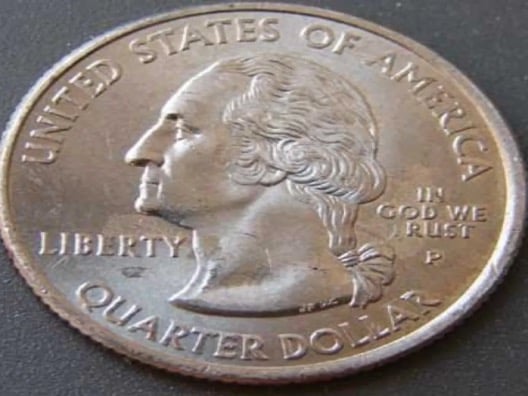
Estimated Value: $100
What’s better than a regular error? A comical error. Thanks, 2005, for that hearty laugh and the increase in worth. This Kansas quarter gave us the gift that keeps on giving. Not only is it real money, but it’s also hilarious.
The missing letter happened during production on one of the machines that were used to press the image. Apparently, an overabundance of grease accumulated over time had a lasting impact on the end result.
Godless, 2007
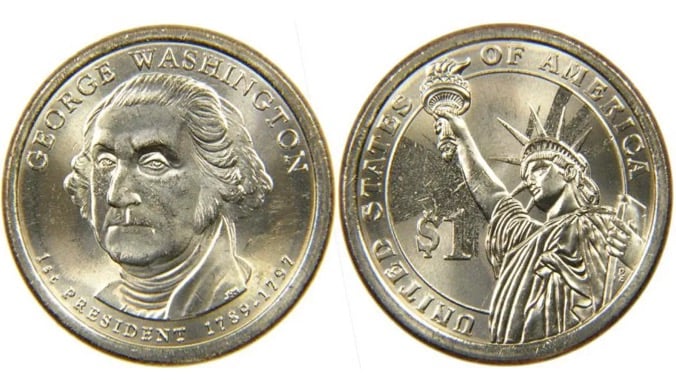
Estimated Value: $1,000
If we’re not rusting by God, perhaps we should just leave him out altogether? Two years after the rust debacle comes the Godless coin.
In an effort to give a facelift to the Presidential Dollar, the revamp took out the famous line, “In God We Trust.” Was it a statement? Was it happenstance? Perhaps an overlooked design omission. Whatever it was, it wasn’t missed.
Bowed Liberty Dollar, 1804
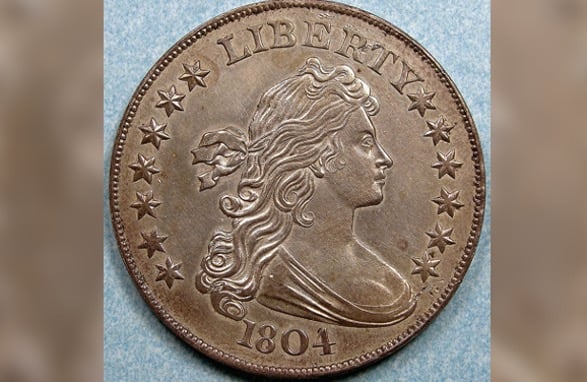
Estimated Value: $4.14 million
The United States of America was still new, the Revolutionary War had ended a mere 20 years earlier. That’s when Lady Liberty had hair that would inspire Beyonce. Her hair with a bow accessory was then immortalized on a dollar coin.
More than 200 years later, these coins are highly sought after. It might be years before you find one since there are about a dozen left. Something you might not know unless you were a collector, is that the date is a lie. These dollars were not actually minted until the 1830s.
Connecticut Regular Strike, 1999
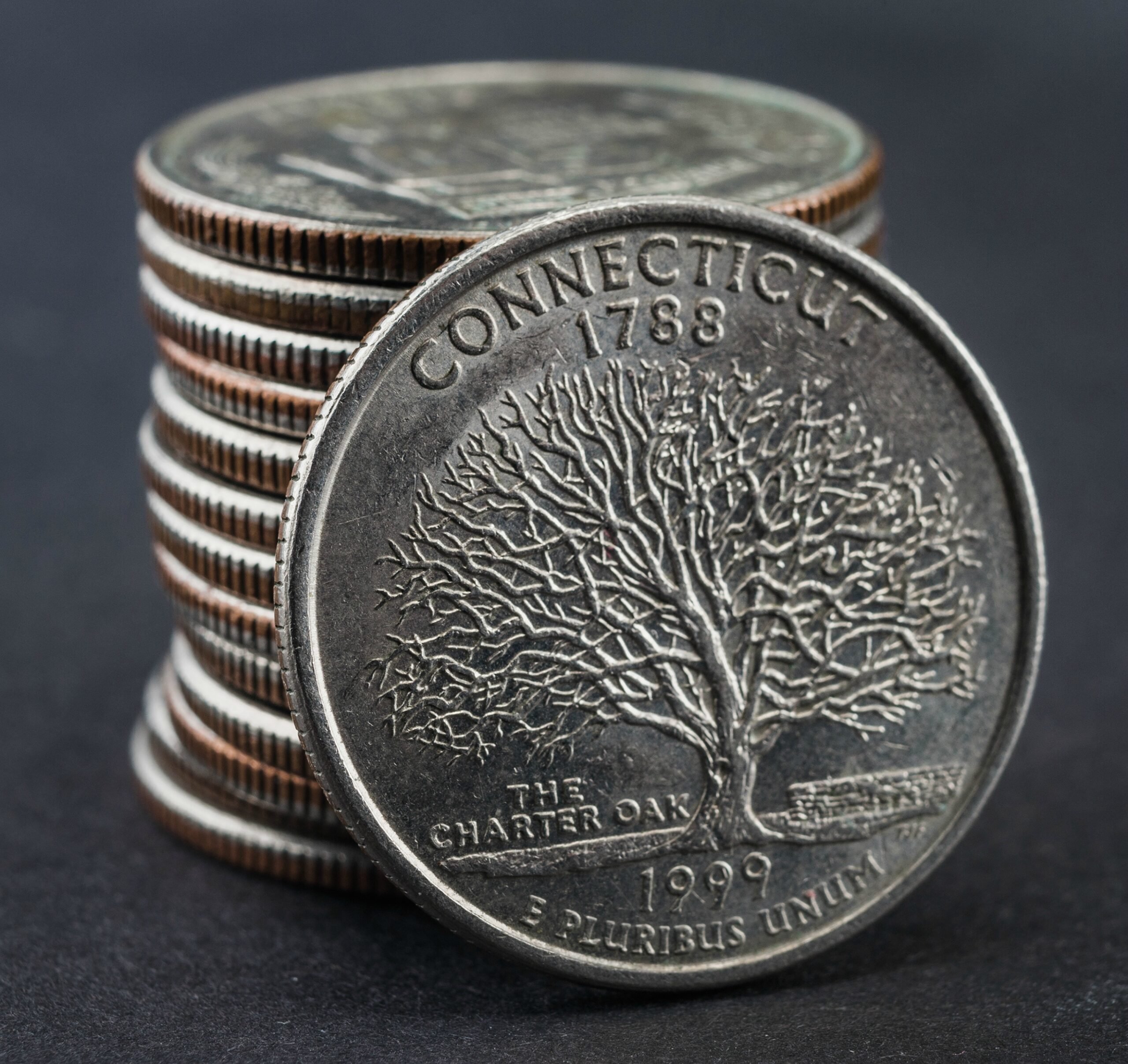
Estimated Value: $25
In the midst of the production of any product, an error is a pain. Not only does it create an impurity or defect, but it’s also not fun when you take joy in your craft.
Over time, these slights turn into something special, as is the case with this 1999 quarter. What makes this error unique is that the stamp actually sort of causes our first president’s head to protrude a tad from the coin. In hindsight, if you had gotten this as part of your change, you might have thought it was on purpose.
Double Ear, 1977
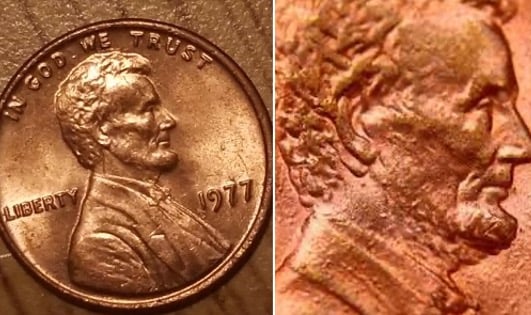
Estimated Value: $450
According to all the images we’ve seen of the 16th president, he only had one earlobe. Then again, maybe this was an ancient Greek interpretation.
Just like with modern-day computers, sometimes things go wrong and there really is no decent explanation for it. Machines, like all technology, sometimes have a mind of its own. That’s the case here with the double-lobed Lincoln. Some view it as an offensive, hideous mess. Some can barely notice it.
Double Die, 1972
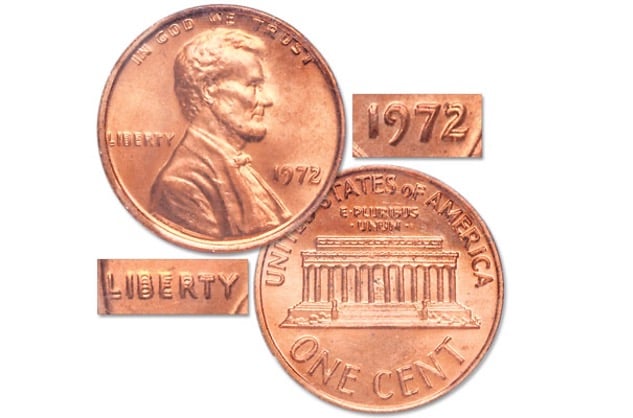
Estimated Value: $1,600
If you thought the double-lobe was grotesque, hold your hat. You will be seeing double in this 70s penny.
Unlike the last penny, this one is a little more obvious. At first glance, you may assume that this penny meant business due to the bold text. Then, you notice the more defined Lincoln. No, he didn’t get a new design, he just got stamped. Twice.
Double Die Liberty, 1995
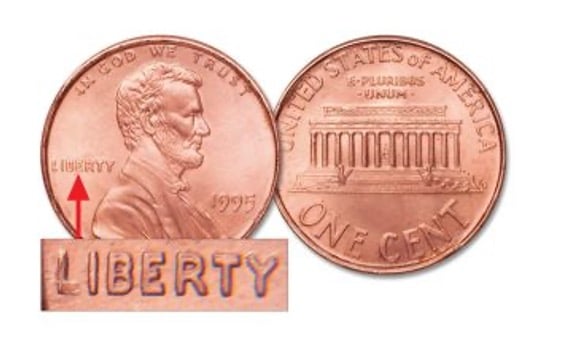
Estimated Value: $50
Another issue causes a standout effect. When working in such a swift environment with processes like coin making, there are bound to be slip-ups. The issue with this mid-90s penny is the double stamp of the word “Liberty.” It almost acts as a 3D-effect the way the double press creates the illusion.
The error shows up most easily in the “B” and “L”. While whoever was in charge of this flaw might have gotten in trouble two and a half decades ago, today they’d be pleased to know these coins are worth 5,000 times more than its face value, making it a $50 treasure.
Double Died, 1969
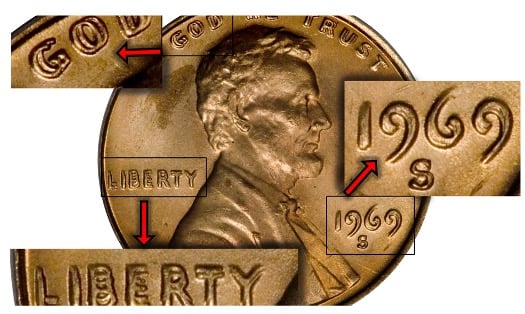
Estimated Value: $45,000
Ever seen someone with hair so perfect that you knew it had to be a wig? Eventually, you realize that it was, in fact, real. That’s what happened to the Secret Service when this penny got into circulation.
This penny was so fantastic, it was too good to be true to the government. The reason was that it was so thoroughly stamped over and over that it looked like a fake that was trying too hard to be perfect. Unlike some double-stamp jobs, each letter here is amusing.
Double Die Date, 1970
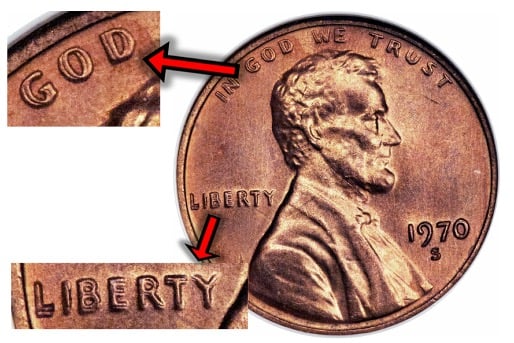
Estimated Value: $37,000
A lot of double-dipping back in the day, huh? Well, this particular double die job was another San Francisco fail.
We know it was from the home of the Golden Gate Bridge due to the “S” signature. The text, once again, is emboldened on the penny. Also, the font size for the date is actually smaller than usual for the time. Such tiny detail could make you $37,000 richer.
No Mark Dime, 1982
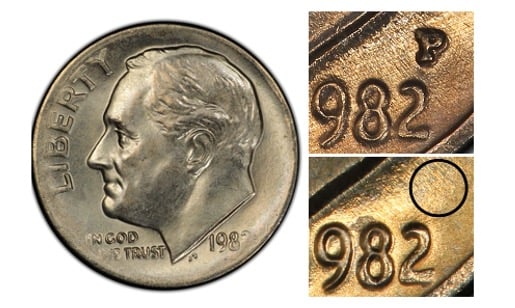
Estimated Value: $1,300
A popular thought to ponder is if a tree falls in the forest, and no one is around, does it make a sound? On a similar note, if a dime isn’t marked by the Mint, did a Mint make the dime?
Well, someone had to do it. This 1982 dime was the first coin ever made stateside that did not have a mark indicating which mint it came from. If you have some old coins in your pocket, you might want to keep a lookout for this one.
Half Dollars, 1965 – 1970
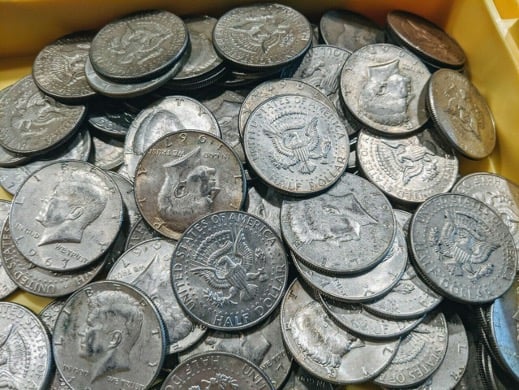
Estimated Value: $2
Sometimes it’s not about the details of the coin but what the coin is made of itself. These aren’t just half dollars, they’re silver dollars. A silver dollar would be used to buy something worth 50¢.
Forty percent of those larger than a quarter-sized coins are made of silver. The value of silver would be able to make you more money than what you could buy with the half dollar itself.
Coronet Head, 1849
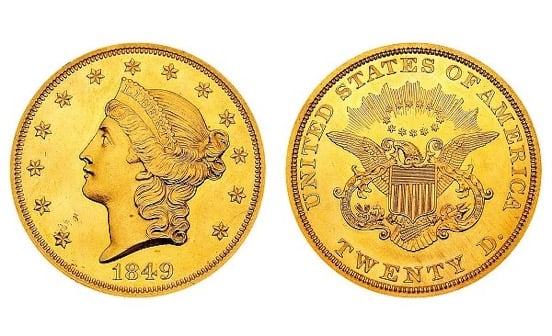
Estimated Value: $20,000,000
Most likely the rarest US coin, and most valuable, the Coronet Head, was a $20 gold coin. This coin was designed and made during the midst of the California Gold Rush. At the time, Americans were flush with cash, or gold, and wanted to show off.
Rather, they wanted to make use of their findings. Turning money into more money. Imagine how these same people would feel to learn that their precious gold $20 coin was now worth closer to $20,000,000!
Speared Buffalo, 2005
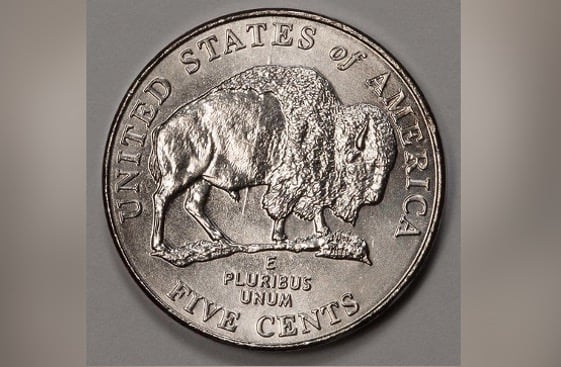
Estimated Value: $1,265
This wasn’t the first time a buffalo design appeared on the back of a nickel. It was, however, the first time it looked like someone had it out for the buffalo. As we move forward in getting more rights for animals, this nickel seems to be a reminder of lesser times.
You see, back in the day when trains were used to travel across vast distances, there was a strange thing wealthier men would do. They’d shoot buffalo from the train for sport. It was barbaric. This nickel was actually an accident, but it makes it look like there is a spear through the buffalo.
Indian Princess Head, 1870
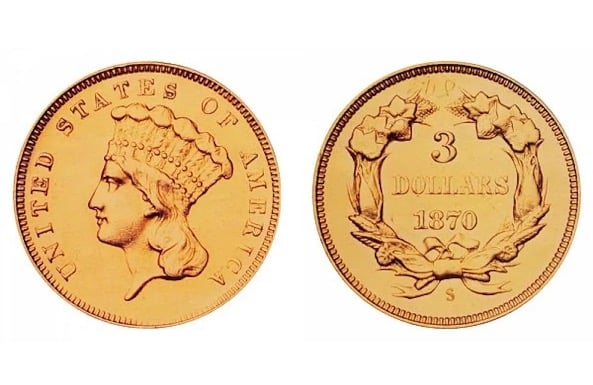
Estimated Value: $7,000,000
Just as rare as Coronet Head, Indian Princess Head is a solo venture. Yes, there is supposedly only one that was ever made. And yes, San Francisco was involved.
The San Francisco Mint wasn’t even built yet and it was still causing problems. This singular coin was designed and stamped to be part of the cornerstone of the Mint. Yet, somehow, it was exposed to the elements. Were there two of these coins made, purposely, to throw everyone off? Never put anything past San Francisco.
Flowing Hair, 1773
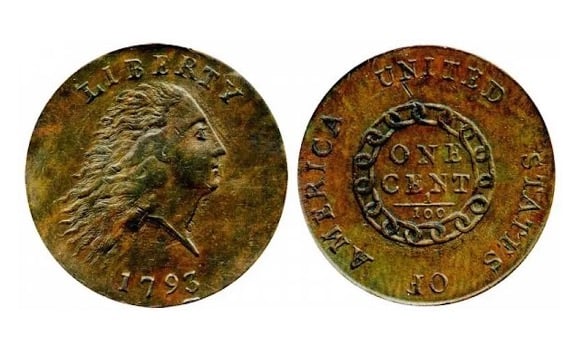
Estimated Value: $1.5 million
We’ve gone over some pretty old coins but this one takes the cake. Coming in at the tail end of the 18th century, this coin was simple and to the point. It also showed a preference for good hair.
At this point in time, we, as a country, were still trying to figure out what we wanted our coins to look like. What made this one different from the other coins in 1793 was the addition of “America” as well as removing the periods on the front after “Liberty” and the date.
Wide AM, 1999
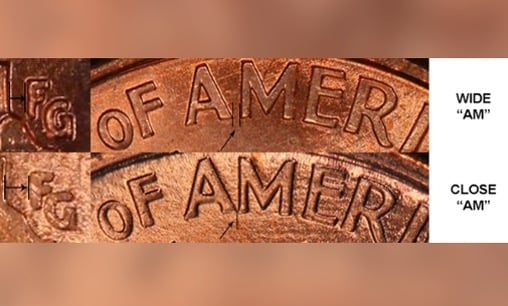
Estimated Value: $530
Sometimes we all just need a little space, right? Perhaps even inanimate objects? Well, either way, that’s what happened on this penny. This is another one of the flaws that would take a sleuth to discover.
This penny did not party like it was 1999, clearly. The “A “was beefing with “M” in the word “America” on the back. On every other penny, the two are so close they practically touch. What happened between these two? We may never know.
Seated Liberty, 1873
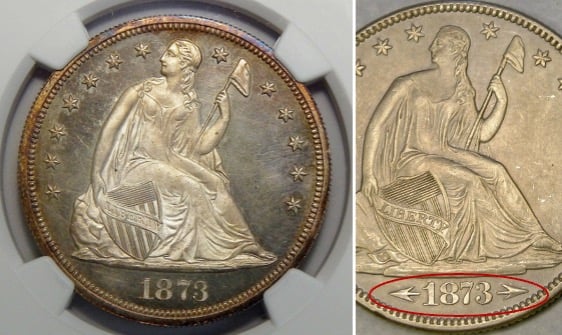
Estimated Value: $1,000,000
With as many busts as we’ve seen on coins, it’s nice to see something different. No wonder this one is worth over $1,000,000!
What makes this particular dime so interesting to collectors, aside from Lady Liberty being able to have a seat, is the lack of arrows surrounding the year. She was as special then as she is 150 years later.
US Filipino Peso, 1906
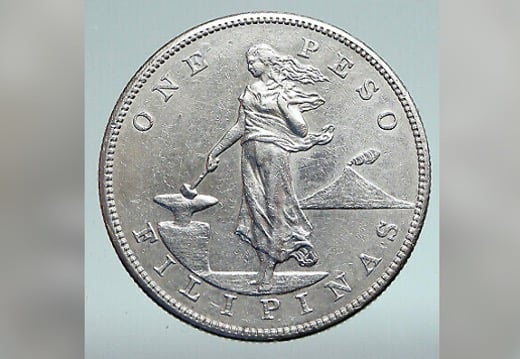
Estimated Value: $40,000
This time, a century ago, the United States was occupying the Philippines. This went on for over three decades. By the demand of the Americans in power, the Filipino Mint started making new coins. One such example is this peso from the turn of the century.
As time went on, and the US saw its way out of the Philippines, these were melted down because they were 100% silver. Any remaining coins could fetch a pretty penny, or peso, today. The last authentic peso was sold for $40,000 in 2019.
No Mark Wheat Penny Error, 1937
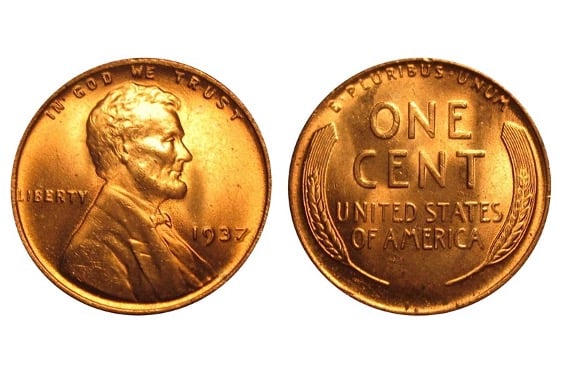
Estimated Value: $7,200
No, Lincoln isn’t slimming down and your eyes aren’t deceiving you. There’s less to love, but that was simply an error.
This 1937 penny was brought to life in Pennsylvania. Unfortunately, someone forgot about marking it so it’s sort of naked, as far as pennies go. We don’t come across change as much as we used to, as a society, but going forward you might want to stay on the lookout for these pennies.
Extra Low Leaf, 2004
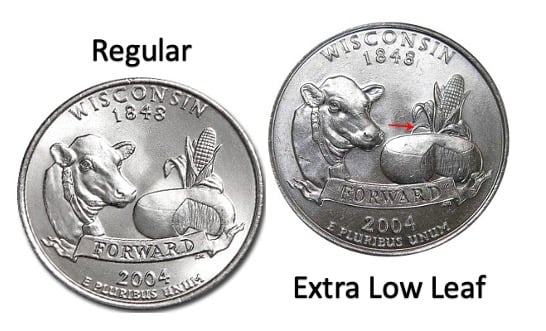
Estimated Value: $140
Difference in a creative point of view or a simple error? You be the judge. This one almost seems like an artist who had a creative license to do what they wanted with the corn stalk. Then, some negative Nancy came through and put her foot down in regards to that extra leaf.
Maybe she thought it wasn’t aesthetically pleasing. Maybe the artist thought it was important for the structural integrity of the image.
Extra High Leaf, 2004
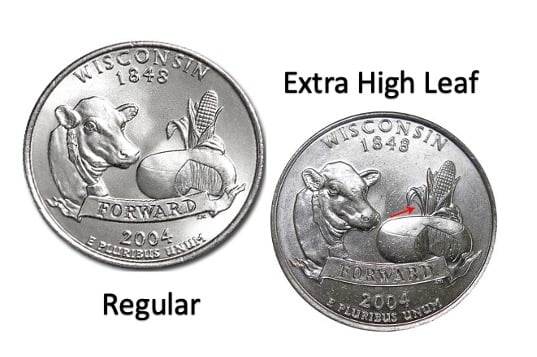
Estimated Value: $168
Oops, Wisconsin did it again. They played with our quarter. Got lost in the leaf. Last time they went low and this time they went high with an extra high leaf on the corn.
Whether you find a quarter with a high or low leaf, you’ll still be making money, but the high leaf has a bigger payout. If you have this storied piece, it’s worth around $168.
Copper Wheat Penny, 1943
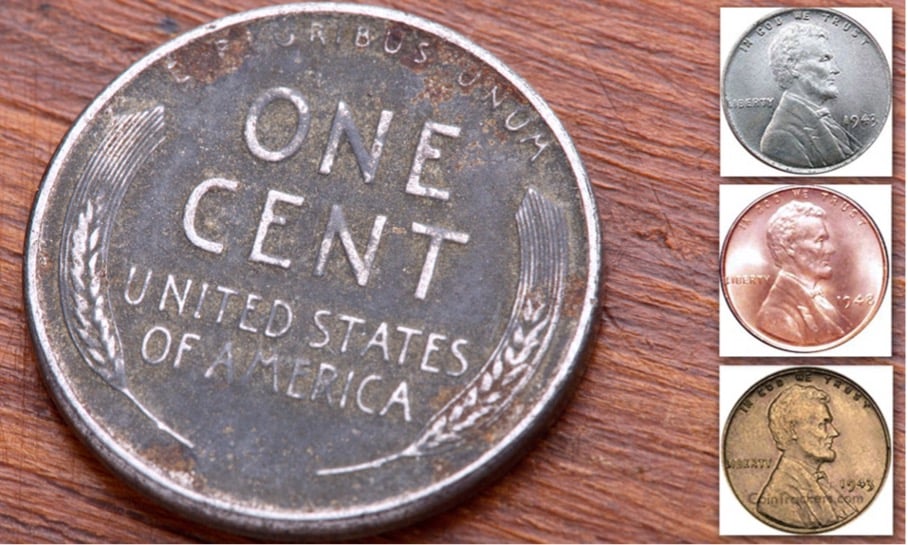
Estimated Value: $150,000
Like most things during wartime, even pennies had to be sacrificed. The sacrifice in question has to do with the material pennies were made of, copper. It all had to go towards the war effort.
So, the agreement was that starting in 1943, the pennies would be comprised of steel instead. These were called war pennies at the time. In the transition to steel, there were some copper sheets mixed into the new year’s batch. By accident, about 40 copper pennies from 1943 were stamped.
Gold Mormon Coin, 1851
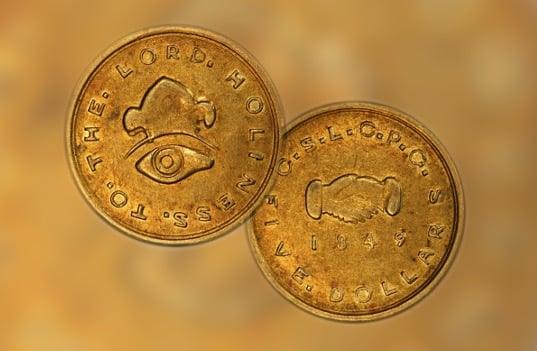
Estimated Value: $50,000
There’s gold in them hills! That was all the motivation people needed to leave their lives behind in search of a fortune out west during the Gold Rush. Those hoping to come upon riches in California weren’t relegated to the common folk.
Religious people alike were also in the chaos of gold rushing. Those who would identify as Latter-day Saints participated in the hunt and managed to discover some of the shiny stuff to bring back home. Thus, the $5 coin was born.
Liberty Head Nickel, 1913
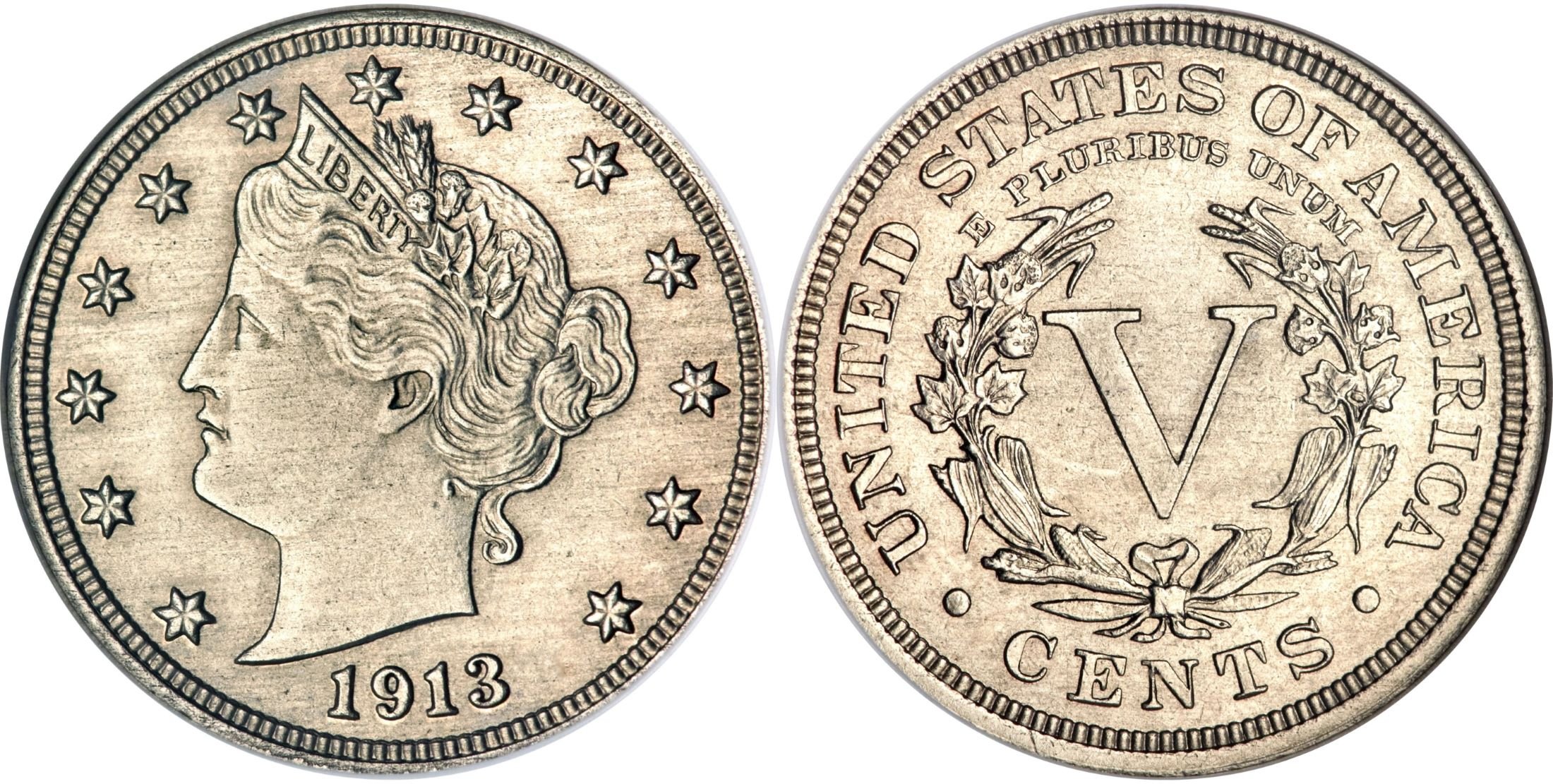
Estimated Value: $4.5 Million
This particular nickel is worth much more than 5 cents. Only 5 of this coin were ever made, making it incredibly rare. It was the first coin to ever sell for more than $100,000. And later, it became the first to ever sell for $1,000,000.
In 2018, this buffalo nickel sold for $4,500,000. It’s hard to imagine how many hands this coin has passed through since 1913.
Flowing Hair Silver Dollar, 1794
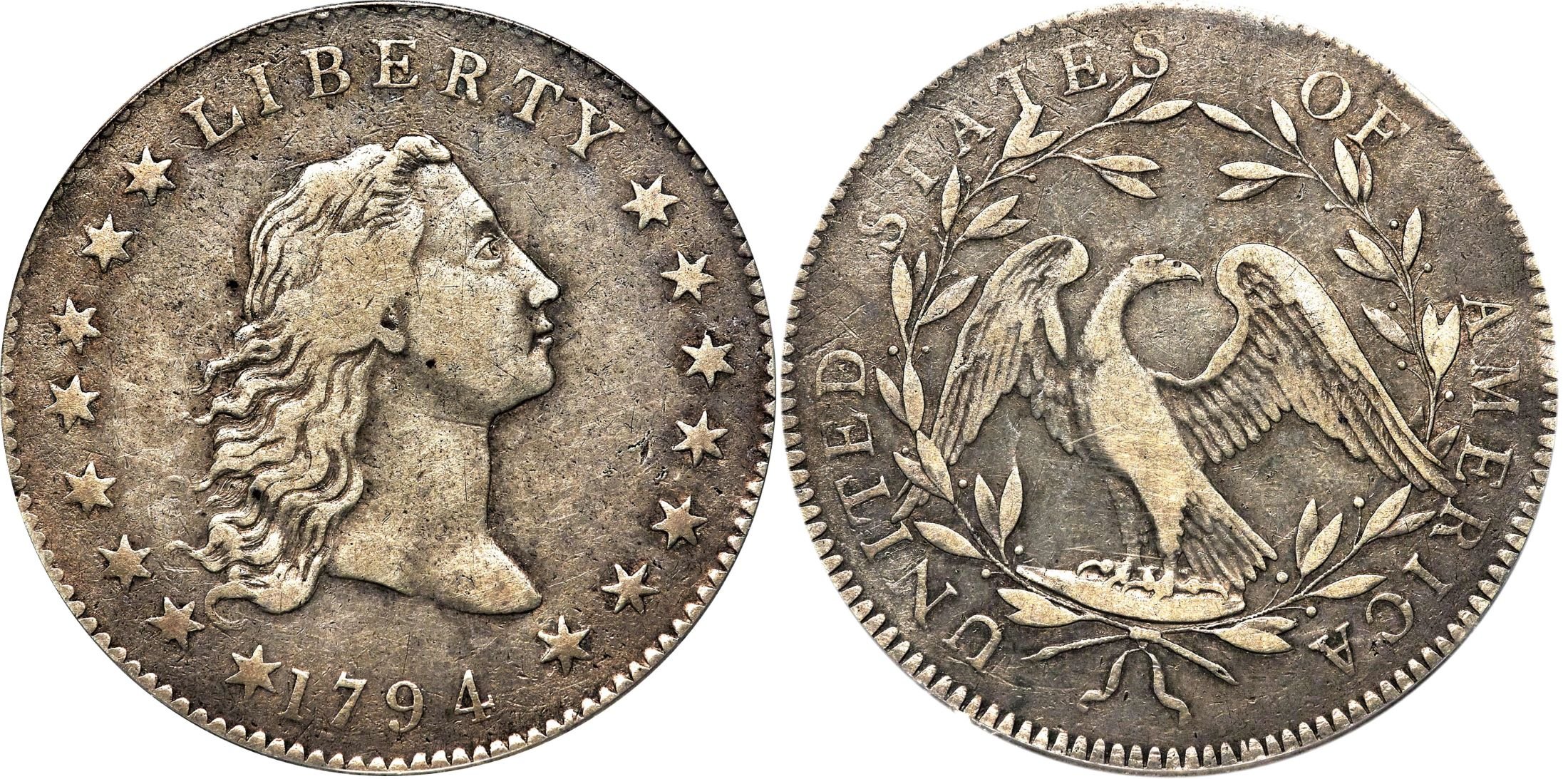
Estimated Value: $13.3 Million
Imagine sifting through some old coins and coming across a tiny piece of silver that is worth more than $13 million! The Flowing Hair Silver Dollar was the very first silver dollar coin ever made.
This particular coin was part of the first batches of production. It sold for about $10 million in 2010 but the value increased even more to match inflation in recent years.
Brasher Doubloon, 1787
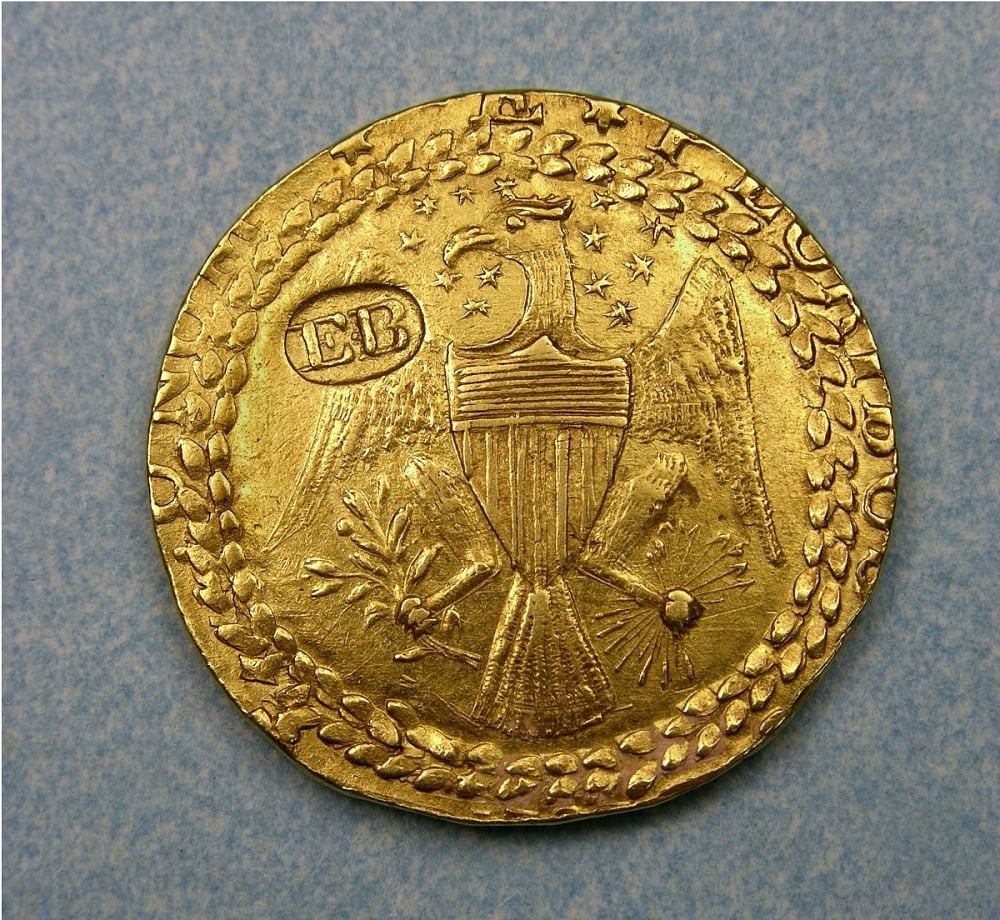
Estimated Value: $9.9 Million
The cool name isn’t what makes this coin valuable. The Brasher Doubloon is valuable because it is the first gold coin ever created in the U.S. In fact, it was struck by George Washington’s neighbors.
A total of seven were produced but only one has the initials of the creator (E.B.) which makes it one of the most valuable coins in the world.
Edward III Florin, 1343
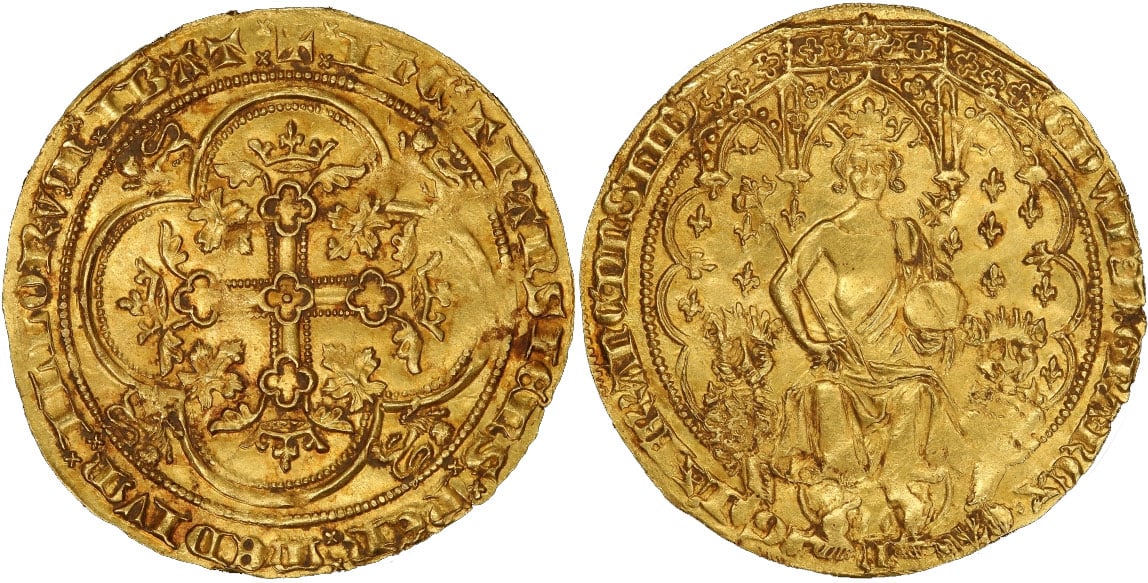
Estimated Value: $6.8 Million
It’s somewhat unbelievable that the Edward III Florin coin still exists today. It was produced between 1343 and 1344 and has managed to stick around for hundreds of years. It’s also commonly referred to as the Double Leopard.
Three of this kind of coin have been uncovered between 1857 and 2006. The most recent coin was found in England by metal detector. Imagine that kind of luck!
Umayyad Gold Dollar, 723 AD
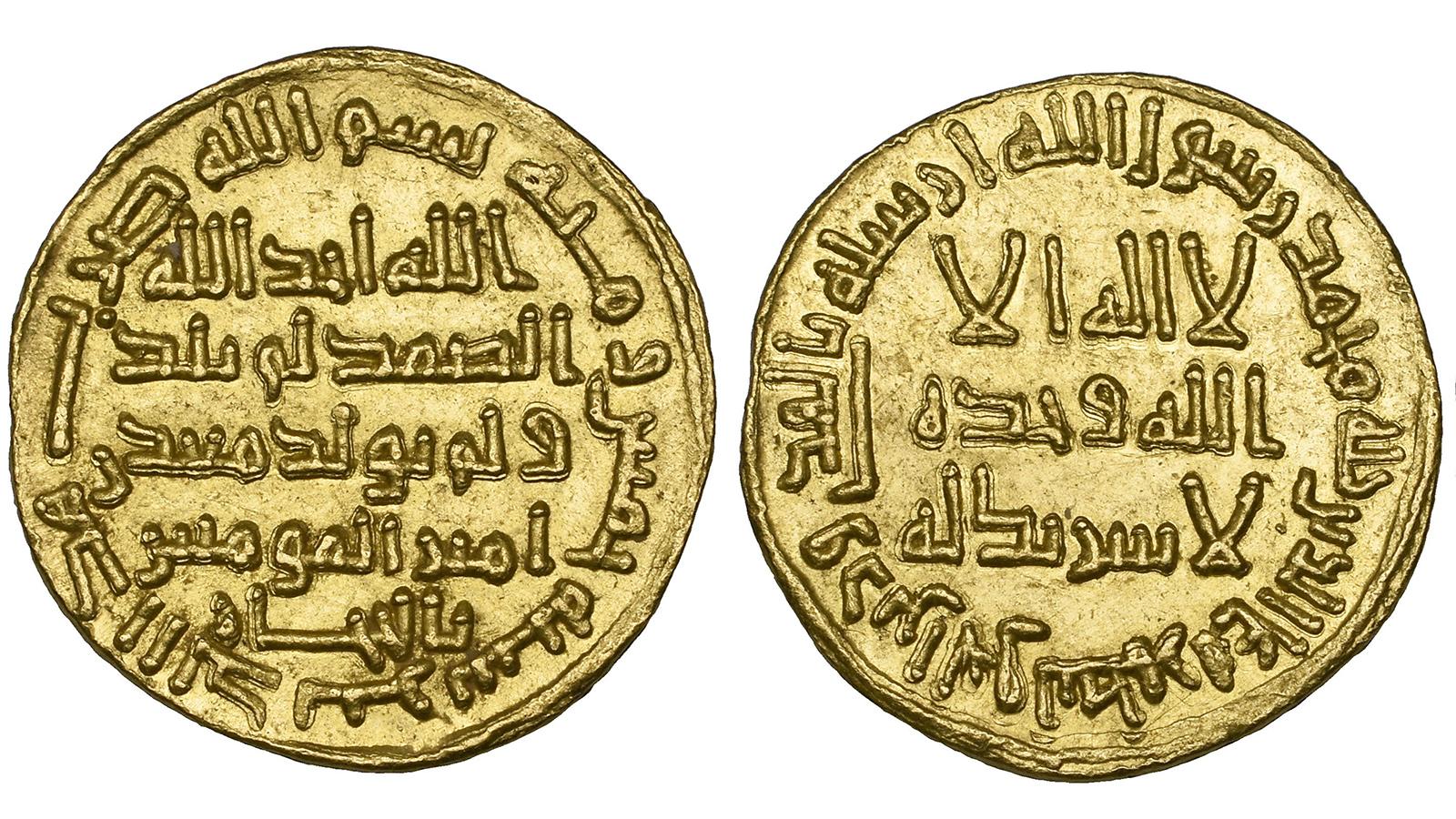
Estimated Value: $5.4 Million
You can probably tell by just looking at this coin that it is extremely old. In fact, it is over 1,000 years old! Apparently, there are about 12 of these ancient coins still in existence.
The most recent of which was sold for almost $5.5 Million in 2017. The inscription on the coin translates to “Mine of the Commander of the Faithful in the Hijaz”. The original price of this coin is a mystery lost in history.
Canadian Gold Maple Leaf, 2007
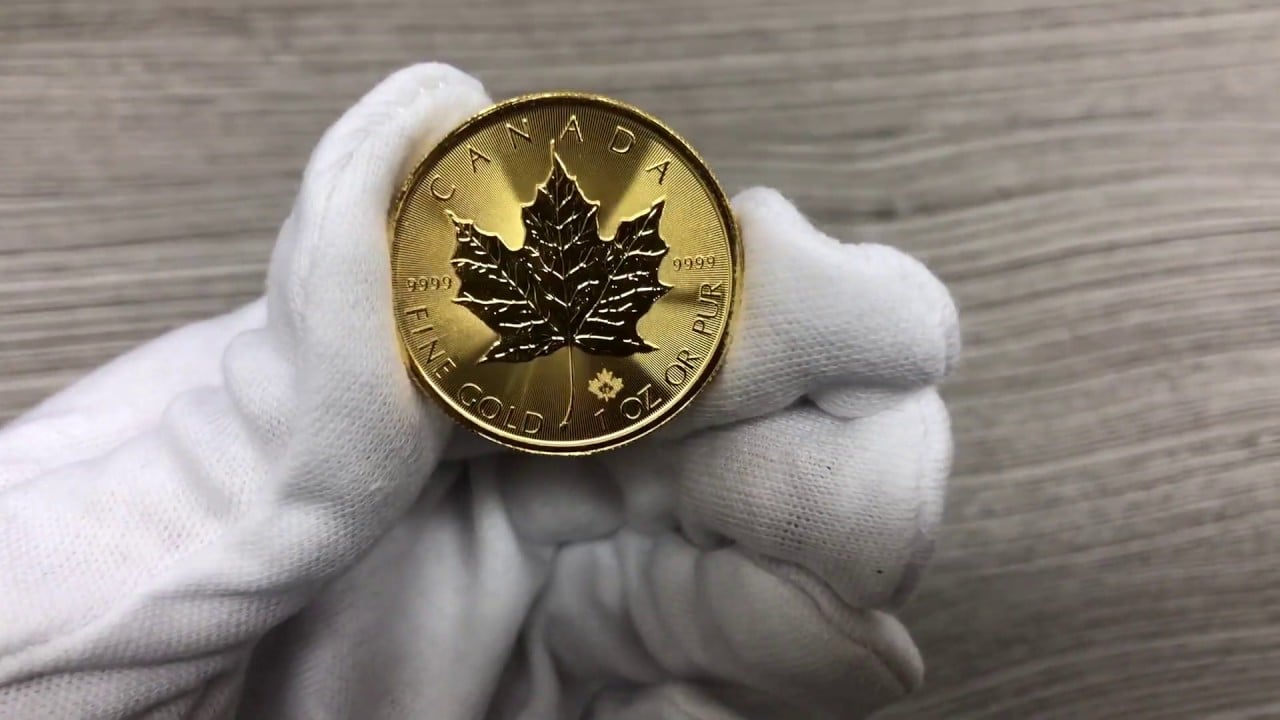
Estimated Value: $5.3 Million
In more recent history, the Canadian Gold Maple Leaf came into circulation. It’s a novelty item that is highly sought after by collectors all over the world. It holds the Guinness World Record for the world’s largest gold coin.
Only 6 of these huge coins were made, which is why they are so valuable today. The most recent was sold in 2010 for more than $5 Million. We wonder how they were able to carry it home!
Liberty Head V Nickel, 1913
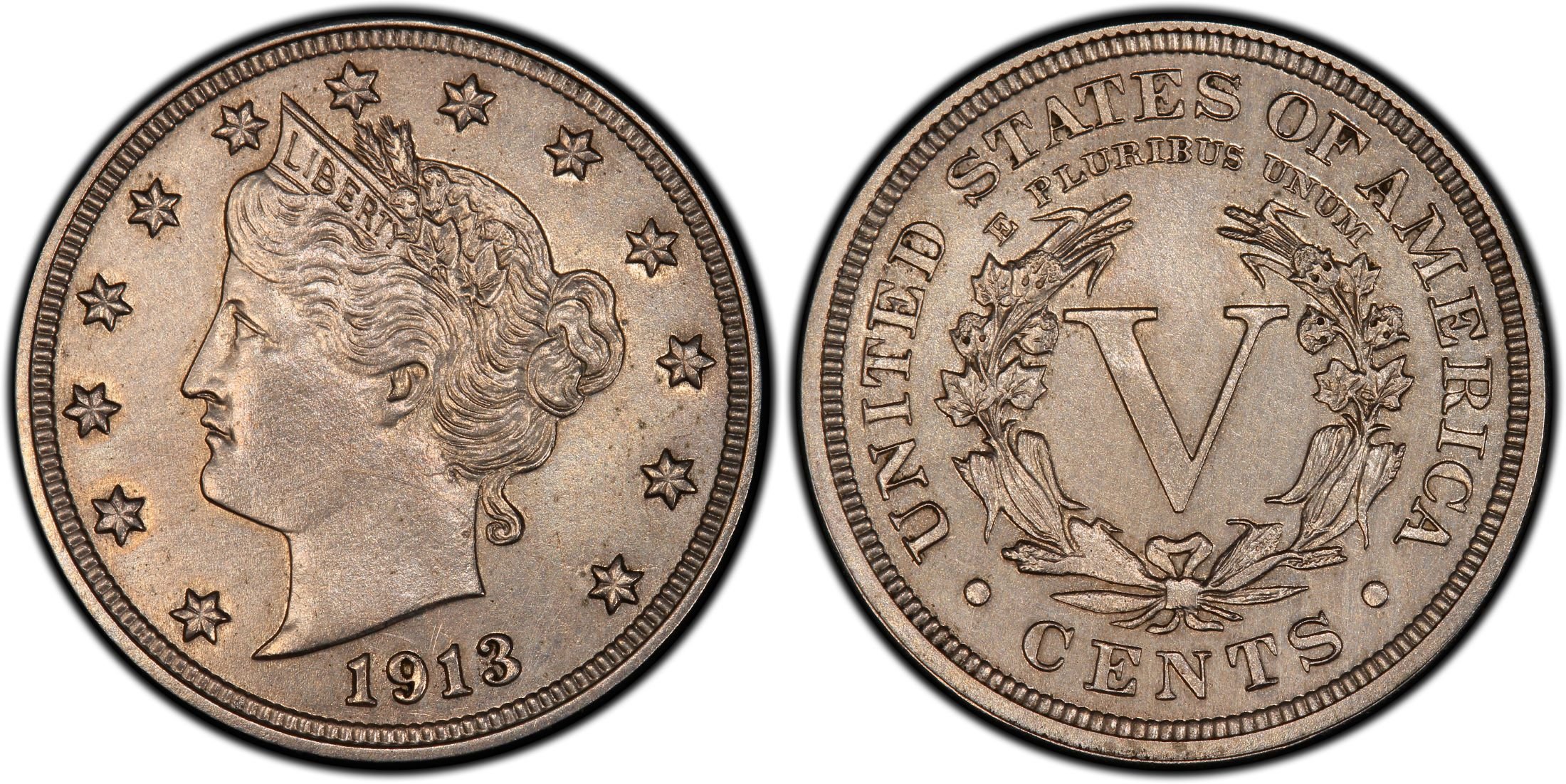
Estimated Value: $5.25 Million
Interestingly, this coin does not even exist in the official United States records. This mysterious coin does, in fact, exist in the real world and is worth a pretty penny (so to speak). Only 5 of this kind of coin were made before it was replaced with the Indian Head Nickel.
Two of the five are in museums on display while the other three are in private collections. The most recent was bought in 2018 for $4.5 million, which would be more than $5 million today.
